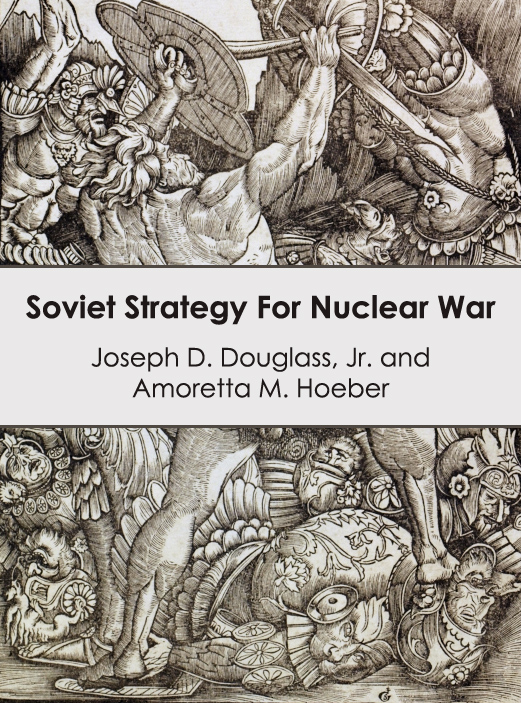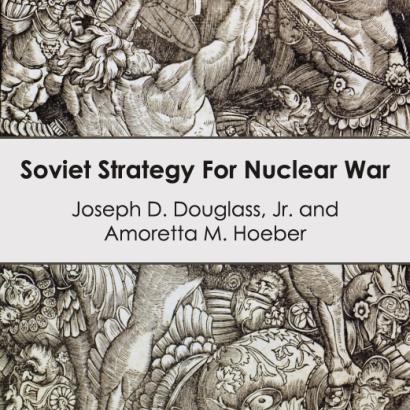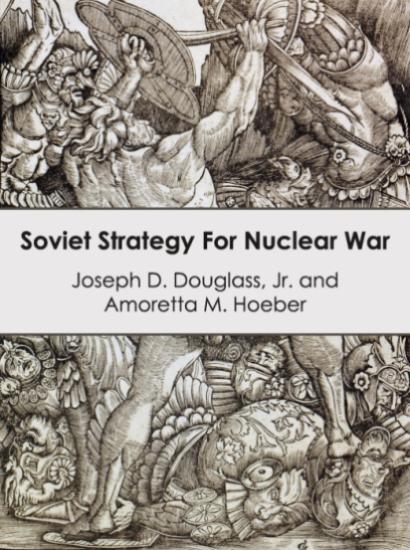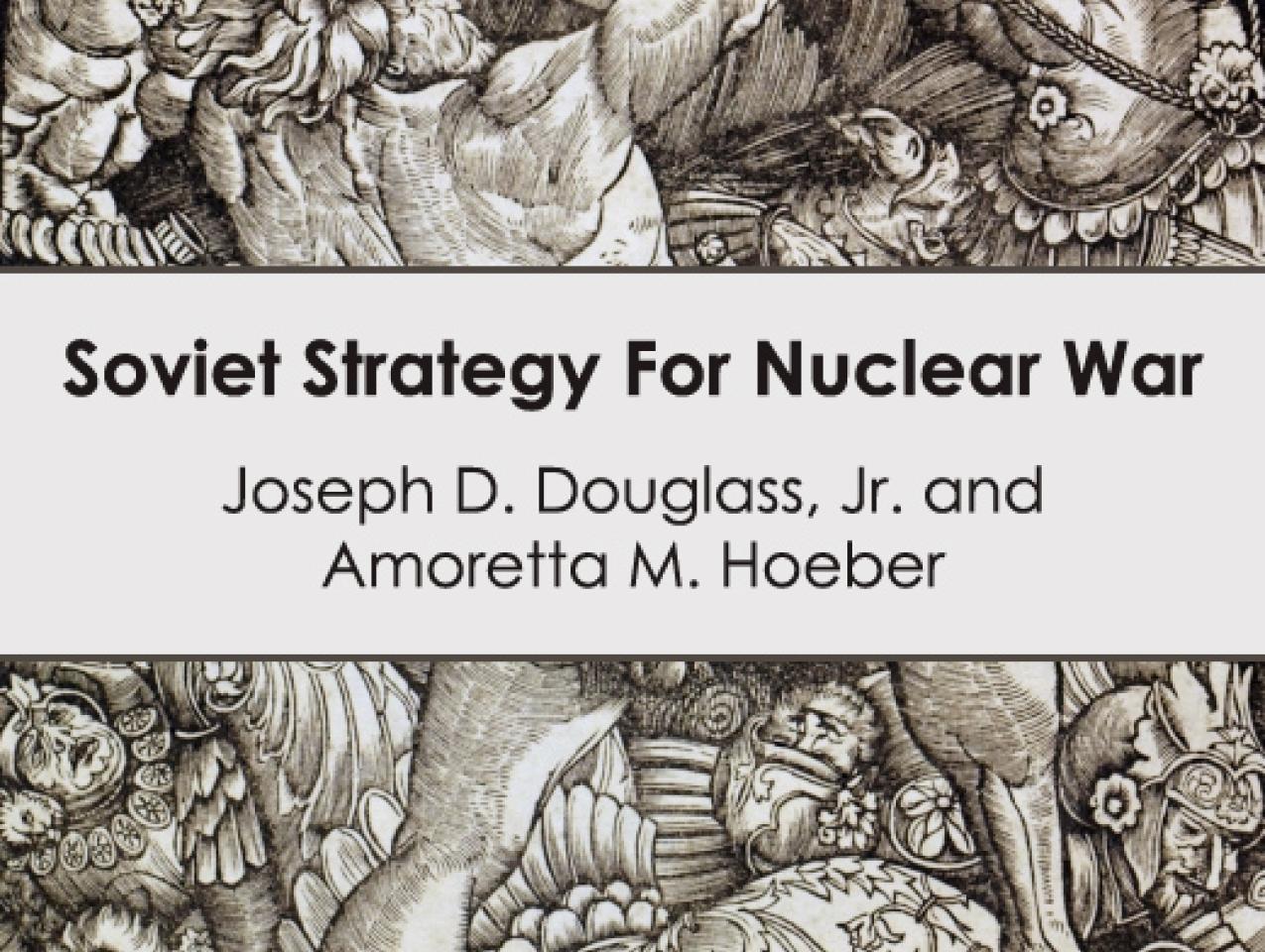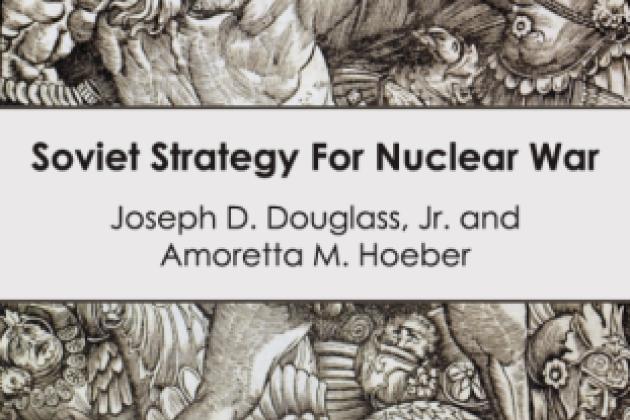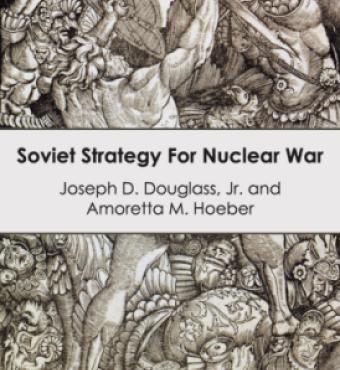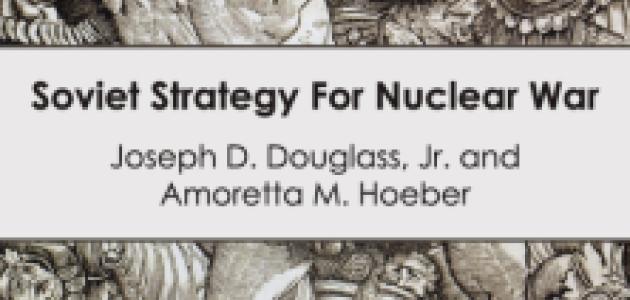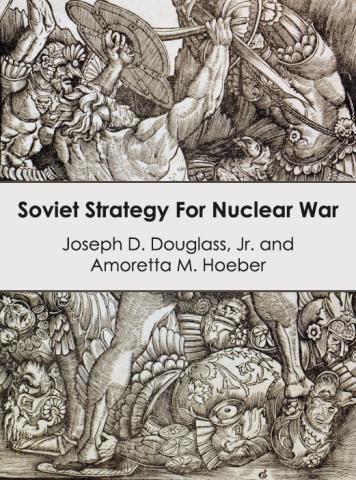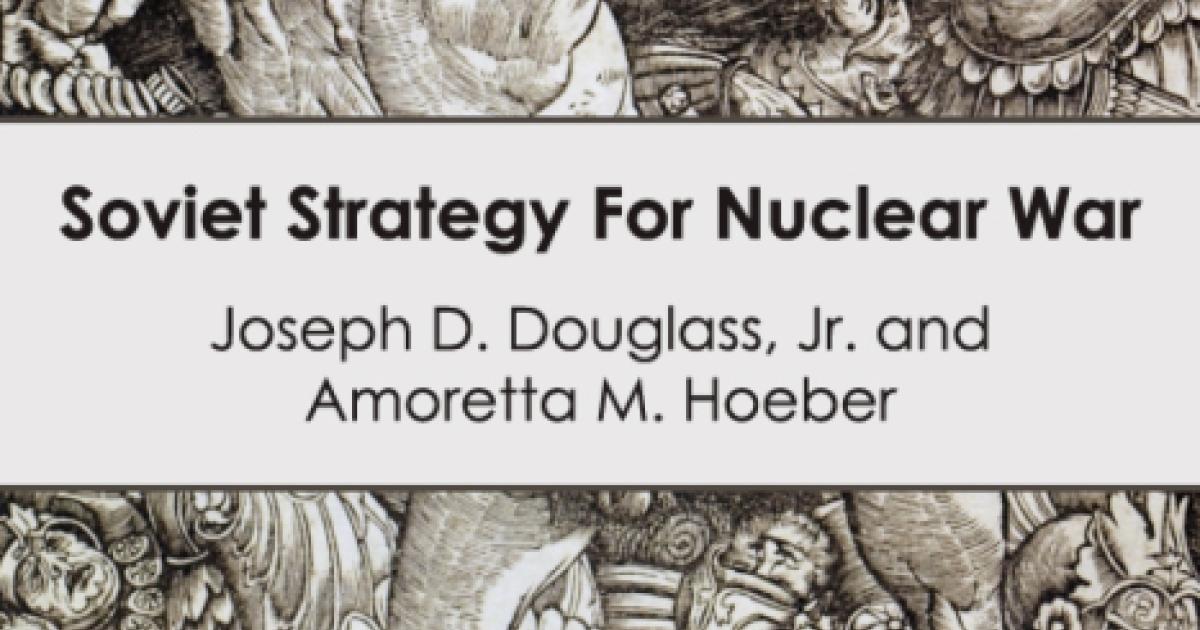- History
- Military
The Soviet view of nuclear war has never been readily available to American audiences. Beginning in the late 1960s (after the Glassboro, NJ summit of 1967), the Soviet Union went to great lengths to convince Americans that they shared the terms of reference that the above- mentioned books had established in America. Notable in this regard is Henry Trofimenko’s “The ‘Theology’ of Strategy” Orbis (Fall 1977). The Soviet military expressed its thoughts on the subject in voluminous professional literature. Most of it was classified. All was dry as dust. Few American researchers possessed the language skills and the inclination to sort through it. This book, now rare, is one of the few that presented the Soviet viewpoint in its own terms. For a more concise, but no less in-depth treatment, the reader may consult Harvard Russian historian Richard Pipes’ “Why the Soviet Union Thinks It Can Fight and Win a Nuclear War” Commentary (July 1977).
The Douglass/Hoeber book consists largely of quotes from Marshal V. D. Sokolovskii’s, Soviet Military Strategy (Crane, Russak, 1975 [3rd ed.]), William R. Kintner (ed.), The Nuclear Revolution in Soviet Military Affairs (University of Oklahoma Press, 1968), the Soviet “Officers’ Library” series of books (17 books published between 1965 and 1975), and especially the restricted or classified Voyennaya Mysl’ (Warfare Journal).
The notion of a “nuclear exchange,” so prominent in Western literature, is altogether absent from its Soviet counterpart. It stresses classical themes: achieving surprise, and so designing the war’s opening phase as to prejudice the final outcome. The Soviets mock the U.S. distinction between strategic/intercontinental and tactical/theater as “subjective.” “The Soviet literature consistently emphasizes the need for ‘objective assessments,’ ‘sober calculation,’ ‘scientific substantiation,’ and the need to avoid ‘subjectivistic distortions of reality.’” (p. 11) Nuclear war “is not primarily a technical enterprise.” “Nuclear rocket weapons,” which are treated technically as artillery, are “the main means of war.” (p. 8) War can be carried on successfully only “on the basis of objective laws which are independent of man’s volition.” (p. 11)
The most important part of the first and most important phase of the war must aim at “gaining clear and dominant superiority in nuclear forces.” (p. 46) “The most important and decisive factor is the question of which side will be able to achieve both a quantitative and qualitative preponderance of [nuclear] forces over those of the adversary.” (p. 47) In the course of the opening phase, destruction of the enemy’s nuclear forces must take priority.
In short, the Soviet military lived in an intellectual/moral world substantially different from that of the Americans. Reading their writings, one is impressed by their high professional self-regard. They were the heirs of Napoleon’s key insight: massive concentrations of artillery at the point of attack. These men had torn apart the Wehrmacht in no small measure by superior concentrations of firepower at key times and places. Whoever might speculate on how the Soviets might have fought a nuclear war could do worse than to study the opening phase of the Soviet 1944 Vistula/Oder offensive and imagining the substitution of nuclear for conventional explosives.







